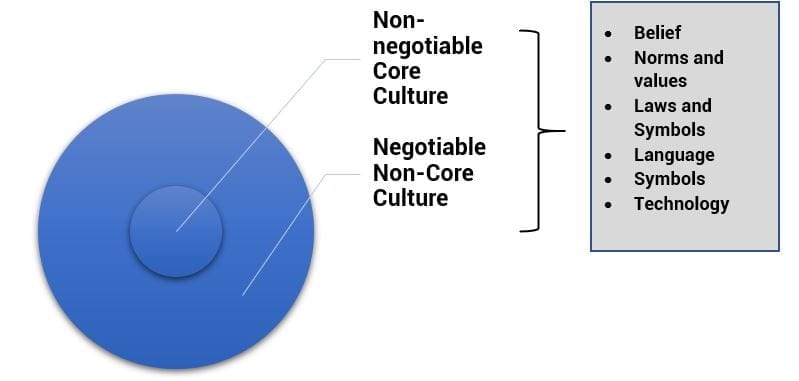According to Glassdoor reviews, a survey of CEOs and CFOs found that 9 out of 10 believe that improving corporate culture would increase their company’s value, and nearly 80% ranked culture among the five most important factors driving their company’s valuation.
With the pandemic posing a huge threat to companies globally, the two (2) business aspects at risk of grossly changing are strategy and culture. These two key elements determine whether businesses will survive and thrive. The danger, however, is that most organisations are focused only on realigning their strategy and unconsciously ignoring the kind of culture they are creating in the process. While you must have strategic and tactical conversations, especially with the guidance of reputable consultants like pcl., it is also essential to have the culture conversation. As Peter Drucker said, “Culture eats strategy for breakfast”. Culture represents the vital force that determines how a strategy would be executed in the short, medium, or long term. As a matter of fact, culture can be a strategy in keeping employees engaged, retained and productive.
Most discussions about organisational culture agree with the idea that culture serves as one of the most critical elements that determine how high or low an organisation would fly. Some say that culture is to an organisation what personality is to an individual. Whether you like it or not, you are building one. Hence, the need to be deliberate about the kind of culture you want to establish within your organisation.
With the advent of the COVID-19 pandemic, there exists a huge opportunity to co-create an enabling culture within organisations. With over 27 years of experience working with clients across different sectors and tiers within the Nigerian and global economy, we can safely postulate that one of the greatest effects of the pandemic on businesses would be what we call the ‘culture effect’. The ‘Culture Effect’ (CE) is the impact that external forces have on the internal culture or behaviour of an entity or organisation. Like humans, organisations can be influenced internally by external happenings or forces. Such is the case with most companies today. The pandemic is indirectly impacting how employees are treated, how they engage customers, and what is permitted and not permitted in the organisation. Justifiably so, as businesses have been hard hit by the pandemic. If customers remain King, then cost has assumed the Queen status. And in the kingdom of customers and costs, profit becomes the god. In a bid to ensure businesses remain profitable, there is a tendency to jettison culture for numbers – a huge mistake, I must say. A study of businesses that have survived uncertainty and challenging seasons reveals that at the core of what they do are cultural traits that are non-negotiable. Albeit some parts of their culture are flexible. That is, organisations who have stood the test of time have both negotiable and non-negotiable cultural elements. These culture categories are influenced by the content of an organisation’s stand in these six areas:
- Belief: an organisation’s convictions, thinking, deep-seated feelings and assertion about why they exist
- Norms and values: an organisation’s behavioural priorities
- Laws and Symbols: an organisation’s operations in terms of conduct and discipline
- Language: the way employees communicate with each other and other stakeholders
- Symbols: the brand of the organisation and its meaning to the employees
- Technology: the digital readiness and approach of the organisation to innovation and creativity.
Leaders are to work with their employees and look at their organisations in the light of these six elements of culture and determine what the non-negotiable cores and negotiable non-cores of the organisation are.
Fig 1.0: The Culture Element Circle
This distinction is very important as it would determine what can or cannot change. As competition in the business world intensifies, change accelerates, and complexity is magnified, organisational culture must become a conversation that leaders should have and drive.
Everything is happening at dizzying levels – including cultural change. Research had previously posited that the development of culture required substantial time investment, but that is no longer the case. With deliberate strategic effort, organisational culture can change fast. What is also clear is that whether we like it or not, culture exists in every organisation or country. Once you have at least one human being in a place, culture would be born. The more people, the more cultural constructs would exist. Hence, the need for deliberateness in determining the cultural direction of an organisation.
Through pcl.’s many years of experience, we have discovered that one of the ways of infusing some intentionality in determining the cultural direction of organisations is to use behavioural assessments such as the Thomas International Personal Profile Analysis (PPA) and Team Audit. We are licensed to deploy these tools to introduce objectivity into the culture conversation. We know guesswork can be very costly, especially when crafting or deepening the kind of culture that will drive your strategy. These assessments and the many others we facilitate can empower your organisation in enriching the culture bit of your talent acquisition, talent management and talent development initiatives.
As David Cummings, the Co-Founder of Pardot, said, “Corporate culture is the only sustainable competitive advantage that is completely within the control of the entrepreneur.”
If you are looking to engineer, refocus, audit, harmonise or align your organisation’s culture, you can talk to us. We have done this for about 27 years and counting. Send an email to people@phillipsconsulting.net
Written by:
 |
 |
| Joshua Ademuwagun
Managing Consultant |
Ruth Pelemoh
Analyst |

